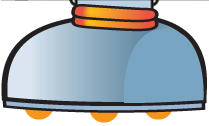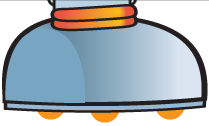The Best Way to Care for Your Children’s Teeth
Caring for your child’s teeth is an important part of caring for her overall health. Just as you care for your child’s health through visits to the pediatrician, immunizations, and good hygiene practices, you should also care for your child’s dental health.
Good dental health care begins in infancy. After breast or bottle feeding, you should wipe your baby’s gums with a soft, wet washcloth. This will help to remove any bacteria or milk residue that could cause bacterial growth.
All About Fluoride
When your baby’s teeth begin to come in, you can begin cleaning them using a soft toothbrush and fluoride-free toothpaste. Toothpaste that does not contain fluoride is best at this young age because it is safe to swallow. Around age three or four – whenever your child learns how to spit – you can begin using regular toothpaste that contains fluoride. You only need to use a pea-sized dab of toothpaste.
Many parents wonder whether their child should take fluoride supplements. Fluoride is an important nutrient because it hardens tooth enamel, making teeth stronger. However, too much fluoride can stain the teeth.
Many cities add fluoride to the municipal water supply. If your town is one of those, then the water that comes from your tap contains fluoride. If your water supply is not fluoridated, your dentist might prescribe chewable fluoride supplements for your child. Don’t give more fluoride than prescribed, as it can stain your child’s teeth.
Cavities
A cavity is a small hole in the tooth. There is bacteria that is naturally present in the mouth. When the bacteria is introduced to sugar in food, it forms an acid that damages the teeth and creates cavities. Although many children get cavities, you can prevent them through proper dental hygiene.
There are several factors that increase your child’s risk of developing cavities. They include the following:
- Eating a lot of sweet, sugary foods, such as candy or cookies;
- Drinking sweetened liquids, such as juice or soda;
- Premature birth;
- Low birth weight;
- White or brown spots on the teeth;
- Infrequent visits to the dentist.
In order to prevent cavities, kids should brush their teeth at least twice a day and see the dentist every six months.
Food & Drink
Diet plays a big role in whether your child develops cavities. Try to limit your child’s intake of sugary foods and drinks, especially sticky, sugary foods, like gummy fruit snacks. Offer healthy snacks, like fresh fruits and vegetables, whole grain crackers, cheese, and yogurt. Stick with plain milk and water to drink, and limit juice. Whole fruit provides better nutrition and less risk of dental decay than fruit juice.
If your child drinks from a bottle, don’t let him take the bottle to bed. Falling asleep with a bottle in his mouth can cause cavities. You can introduce a sippy cup around six months of age, and try to transition completely from bottles to cups by the first birthday. Your child should also see the dentist by her first birthday.
Thumb Sucking
If your child sucks their thumb or uses a pacifier, don’t worry. Most children outgrow the habit naturally by age four. If you have concerns, discuss them with your dentist. Sucking a thumb or pacifier usually doesn’t pose a problem unless it continues through the time that permanent teeth are developing.
Call Tustin Pediatric Dentistry to make an appointment for your child to see one of our three board-certified pediatric dentists. We care for your child in a calm and welcoming environment, so contact us to set up your first visit today.










